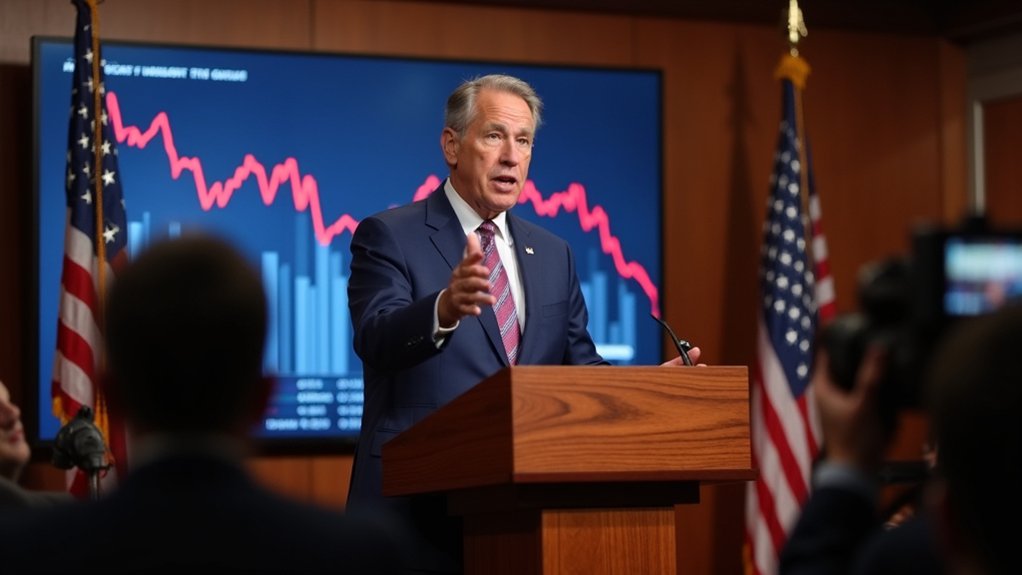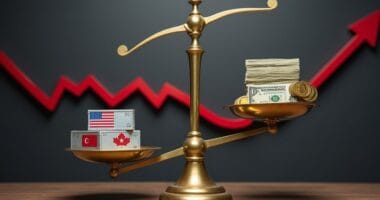Billionaire hedge fund chief Ken Griffin isn’t mincing words about tariffs – he’s calling them a brutal tax that hammers working Americans right in their wallet. Speaking at the Milken Conference, the typically conservative donor broke ranks to blast the policy’s regressive nature. The tariffs function like a sales tax, with price hikes hitting hardest on those already struggling to stretch their paychecks. Griffin’s stark warning carries serious weight in both economic and political circles.

Hedge fund billionaire Ken Griffin delivered a scathing critique of Trump’s tariff policies, slamming them as a “very regressive tax” that hammers working Americans.
Speaking at the Milken Conference in Los Angeles, Griffin didn’t mince words about who’s really paying the price for these trade policies – and it’s not who you might think.
The timing couldn’t be more pointed.
Griffin, a major Republican donor who’s typically aligned with conservative causes, broke ranks to blast the administration’s approach during an appearance on CNBC’s “Closing Bell Overtime.”
His message was crystal clear: these tariffs are hitting hardest where it hurts most – the pocketbooks of everyday Americans struggling to make ends meet.
While Griffin praised the administration’s deregulation efforts as a “godsend,” he wasn’t pulling any punches about the tariff situation.
He warned about the “modest risk of stagflation” and emphasized how these policies could undermine economic stability for working-class citizens.
Pretty brutal stuff from someone who usually writes big checks to Republican candidates.
The billionaire’s concerns didn’t stop there.
Speaking with Sarah Eisen, Griffin painted a grim picture of how these tariffs function effectively as a sales tax, with price increases being passed straight down to consumers.
And guess who feels that pinch the most?
Those already struggling to stretch their paychecks.
Media outlets quickly picked up on Griffin’s May 8, 2025 remarks, with CNBC’s Becky Quick leading the coverage.
His stark warnings about inflation management being “the big metric” voters will use to judge Trump before the midterms sent ripples through political circles.
Griffin’s criticism echoes a broader debate about trade policy effectiveness, highlighting the growing tension between traditional Republican free-trade principles and current policies.
His stance, along with similar confrontations between figures like Scott Bessent and Mark Pocan, suggests this issue isn’t going away anytime soon – especially not with midterm elections on the horizon.
These concerns align with fundamental macroeconomic indicators that economists use to assess national economic health and the impact of trade policies on growth.





